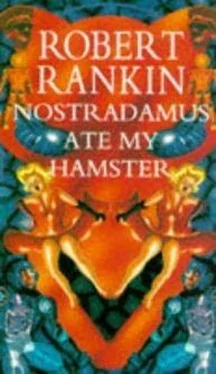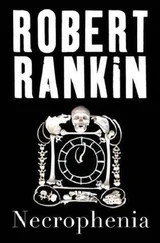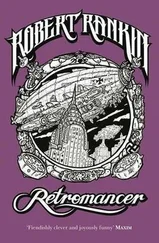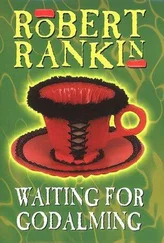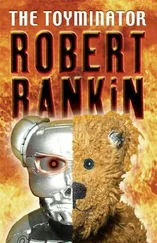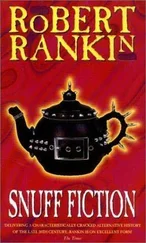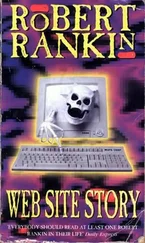“What do you think happened next?”
“My guess would be that the traveller went on to another castle and repeated the performance.”
“That would be my guess too.”
Jim Pooley returned to the table in the company of a pint of Large and a small gin with lots of tonic. “Did the cook fall for it again?” he asked Omally.
“He did,” said John.
Pooley placed the drinks on the table. “One day he won’t and I pity the poor traveller then.”
“Did you get it?” John asked Russell. “Do you understand the metaphor?”
“Oh yes,” said Russell. “I get it.”
“I wish I did,” said Jim.
Russell turned to Julie. “We had best drink up and set to work. I think I know what to do.”
“These will help.” Omally reached under the table and brought out two plastic bin liners. “A change of clothes for each of you. And there’s some money in the pockets.”
“Thank you, John.” Russell shook Omally by the hand. Jim stuck his out, but Russell politely declined on the grounds that things might become a little complicated and there was still a great deal to do.
They changed in the toilets. Russell togged up in the black suit with lightning-flash insignias on the shoulders and Julie into that dress of golden scales.
Back in the saloon bar they said farewell and thanks to Pooley and Omally.
“If it all works out,” said Russell, “we’ll see you both back in old Brentford. Here in this very bar. And the drinks will be on me this time.”
“I’ll drink to that,” said Pooley.
John and Jim returned to their window seats and watched as Russell and Julie walked off hand in hand along the something-strasser, bound once more for the big shopping mall.
“I hope he makes it,” said Jim.
“He will,” said John.
“John?” said Jim.
“Jim?” said John.
“All that stuff about the metaphor, you wouldn’t care to explain that to me ?”
“I would,” said John. “If I only knew what it meant.”
19
Back to The Führer III
“So you know what it means?” said Julie as they walked towards the mall.
“Oh yes,” said Russell. “It all makes perfect sense.”
“Well, I understand that you’re the traveller.”
“Oh no, I’m not the traveller, I’m the stone.”
“But the stone was a fake, it didn’t do anything.”
“It was a symbol,” said Russell. “It represents the individual, the individual as a catalyst for change.”
“And the cauldron?”
“The cauldron is the world.”
“And the vegetables and suchlike?”
“Society,” said Russell.
“That sounds about right.”
“You see the stone couldn’t make the soup on its own, but without the stone the soup would never have been made.”
“I thought the cook made the soup.”
“The cook is an aspect of society. He represents society’s greed and its ultimate gullibility.”
“And the traveller?”
“The traveller is time.”
“A time traveller, then the traveller is you.”
“No, I’m definitely the stone.”
“And the boiling water?”
“Change,” said Russell. “Water represents change, because water can be changed into steam or into ice.”
“Water represents permanence,” said Julie. “You can change its form, but you can’t get rid of it. So perhaps the water represents society.”
“Society is the sum of its parts,” said Russell. “The soup is society.”
“You said the vegetables were society.”
“Yes, I meant the vegetables.”
“But you just said the soup.”
“The soup is made out of the vegetables.”
“So they can’t both be society, the soup and the vegetables.”
“They’re aspects.”
“You said the cook was aspects.”
“He is.”
“But he put the soup together, so he can’t be society too.”
“Perhaps it’s the castle,” said Russell.
“What do you mean, perhaps ? I thought you knew.”
“I do know.”
“What’s the wasteland, then?”
“Time,” said Russell.
“The traveller is time, you said.”
“The traveller came out of the wasteland. The wasteland is an aspect of time. Endless you see, like an endless wasteland.”
“The stone came out of the wasteland. So the stone must be an aspect of an aspect of time.”
“In a manner of speaking.”
“What a load of old rubbish.”
“It is not .”
“What’s the kitchen, then?”
“Stop it,” said Russell. “You’re giving me a headache.”
By now they had reached the Schauberger Memorial Mall.
“Right,” said Russell. “So this is the plan.”
“You have a plan?”
“Of course. Now what I want you to do is this: go into one of the gift shops and buy a box to put the programmer in. Write out a note to go with it telling me to take the programmer to Hangar 18. Oh, and I’ll be in The Bricklayer’s Arms eating a stale ham sandwich when I read the note, so mention that, I recall it giving me a shock.”
“And while the little woman is attending to her chores what will her big bold man be doing?”
“There’s no need for that,” said Russell. “I have to acquire the means for us to travel back in time. Meet me in an hour outside the electrical shop.”
“Oh, you’ll have got that sorted in an hour, will you?”
“I very much doubt it, but if it takes me a month to get it sorted, and I will get it sorted, I’ll set the controls on the time device to an hour from now and I’ll meet you outside the electrical shop.”
“That’s very clever, Russell.”
“Thank you. Do I get a kiss?”
“I’ll give you one in an hour.”
Julie gave Russell a wonderful smile, then turned and walked off into the mall.
Russell watched until she was out of sight and then he returned to The Flying Swan.
Pooley and Omally still sat at the window seat, each with a pint glass in hand. A third pint, freshly pulled, stood upon the table.
Russell sat down, raised it to his lips and said, “Cheers.”
“Cheers,” agreed Pooley and Omally.
Russell drained off half a perfect pint, then placed his glass upon the table.
“You knew I’d come back,” he said.
“Hoped,” said Omally.
“So you know that I’ve reasoned it out.”
“About the metaphor?”
Russell nodded. “Julie was the traveller and I was the cook. She’s working for them, isn’t she? For the bad guys. I’ve been had.”
“Very good,” said Omally. “But how did you reason it out.”
“She fits the part too well. I had my suspicions the moment she took the controls of the Flügelrad . Then she spun me the intricate story and I wasn’t sure. But she knew too much. In her eagerness to prove she was on my side she told me too much. And she wasn’t really surprised when we saw Bobby Boy in the mall and she wasn’t really surprised when we met you. And the one thing that she must know, she won’t tell me. And that’s the end of the movie. But what clinched it, was when I told her just now to buy a box to put the programmer in and write out the note. She didn’t even flinch at the thought or try to convince me otherwise, it’s what she intended, it’s why she landed the craft at the exact time she did. So that I would pick up the programmer Bobby Boy forgot to take.”
“You really have reasoned it out,” Omally raised his glass in salute. “Any more?”
“Yes. I don’t think she’s Fudgepacker’s stepdaughter at all.”
“You don’t?”
“No, I think she’s his wife.”
“Give the man a big cigar,” said Jim Pooley. “How did you work that one out?”
Читать дальше
